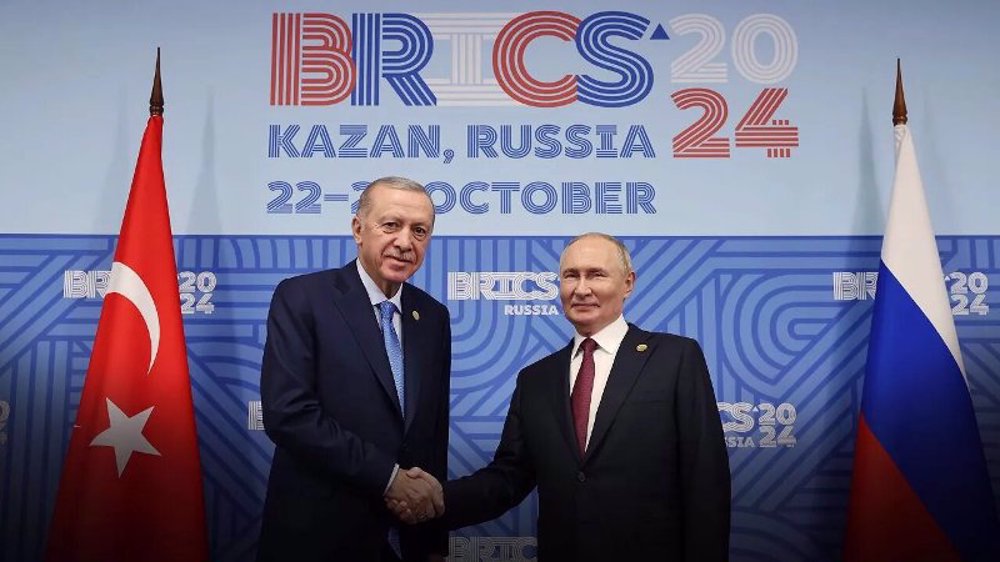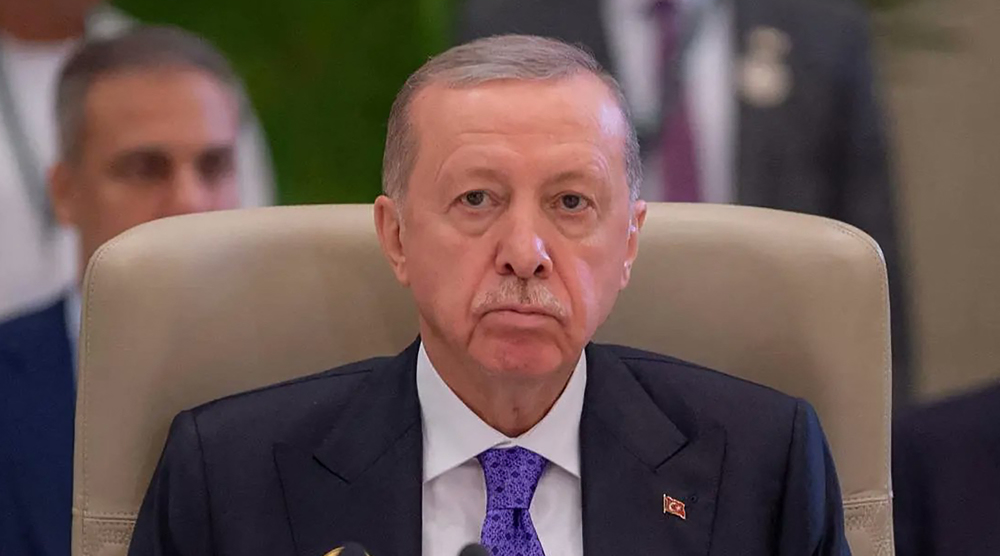France urges Turkey to respect law in crackdown
France has called on Turkish authorities to abide by the rule of law and respect basic rights as they carry on a crackdown in the wake of an abortive July coup.
Speaking in a joint press conference with his Turkish counterpart Mevlut Cavusoglu in Ankara on Monday, French Foreign Minister Jean-Marc Ayrault said, “Turkey has every right to defend and protect itself, and it is Ankara’s decision to extend the state of emergency,” referring to the measure taken in the wake of the coup.
He stressed, however, that Turkey must commit itself to acting within the rule of law as the post-coup state of emergency is being implemented.
“We must reiterate our attachment to the rule of law, to fundamental rights, the right for all to benefit from a fair trial and to defend these rights with the support of lawyers,” Ayrault said.
‘Our state of emergency not like yours!’
The French foreign minister then seemed to make his Turkish hosts uncomfortable by suggesting that there were differences between the state of emergency in Turkey and the one in France, which took effect in the aftermath of attacks in and around Paris in November 2015.
“In France, the state of emergency does not allow for the transfer of legislative power to the executive. Parliament retains all powers of lawmaking and the independence of the judiciary is guaranteed fully,” Ayrault said.
Cavusoglu wasted no time to hit back.
“For us, there is no difference between Turkey’s state of emergency and France’s state of emergency. Their scope and objectives are the same: targeting terrorist organizations,” the Turkish diplomat said as soon as it was his turn to speak.
Turkey initially declared a three-month state of emergency after the failed coup bid. It extended the measure for another 90 days earlier this month to counter what it termed “an extraordinary threat.”

Renegade Turkish military personnel declared themselves in charge of state matters on the night of July 15. They rolled battle tanks down the streets and flew helicopters to fight the supporters of President Recep Tayyip Erdogan and his ruling AK Party in Ankara and Istanbul.
The putsch was later suppressed as tens of thousands of people flooded streets across Turkey in a strong show of support for Erdogan.
At least 246 people lost their lives and more than 2,100 others sustained injuries in the botched putsch.
Turkish television NTV, citing Justice Minister Bekir Bozdag, reported on Sunday that security forces had arrested more than 35,000 people over alleged links to Fethullah Gulen, a US-based Turkish cleric whom the Ankara government accuses of being behind the coup.
Gulen has denied the accusation.
US vetoing of Gaza ceasefire resolution ‘disgraceful’: Iran’s UN envoy
VIDEO | IAEA adopts anti-Iran resolution tabled by E3
VIDEO | Iran's president urges Pope to help end Israel's onslaught in Gaza
Iran's senior legal official: ICC arrest warrant for Netanyahu ‘great victory'
Nov. 21: ‘Axis of Resistance’ operations against Israeli occupation
VIDEO | Israeli forces storm West Bank’s Jenin again, target civilians
Iran activates advanced centrifuges after IAEA's 'unjust' resolution
VIDEO | Press TV's news headlines
















 This makes it easy to access the Press TV website
This makes it easy to access the Press TV website